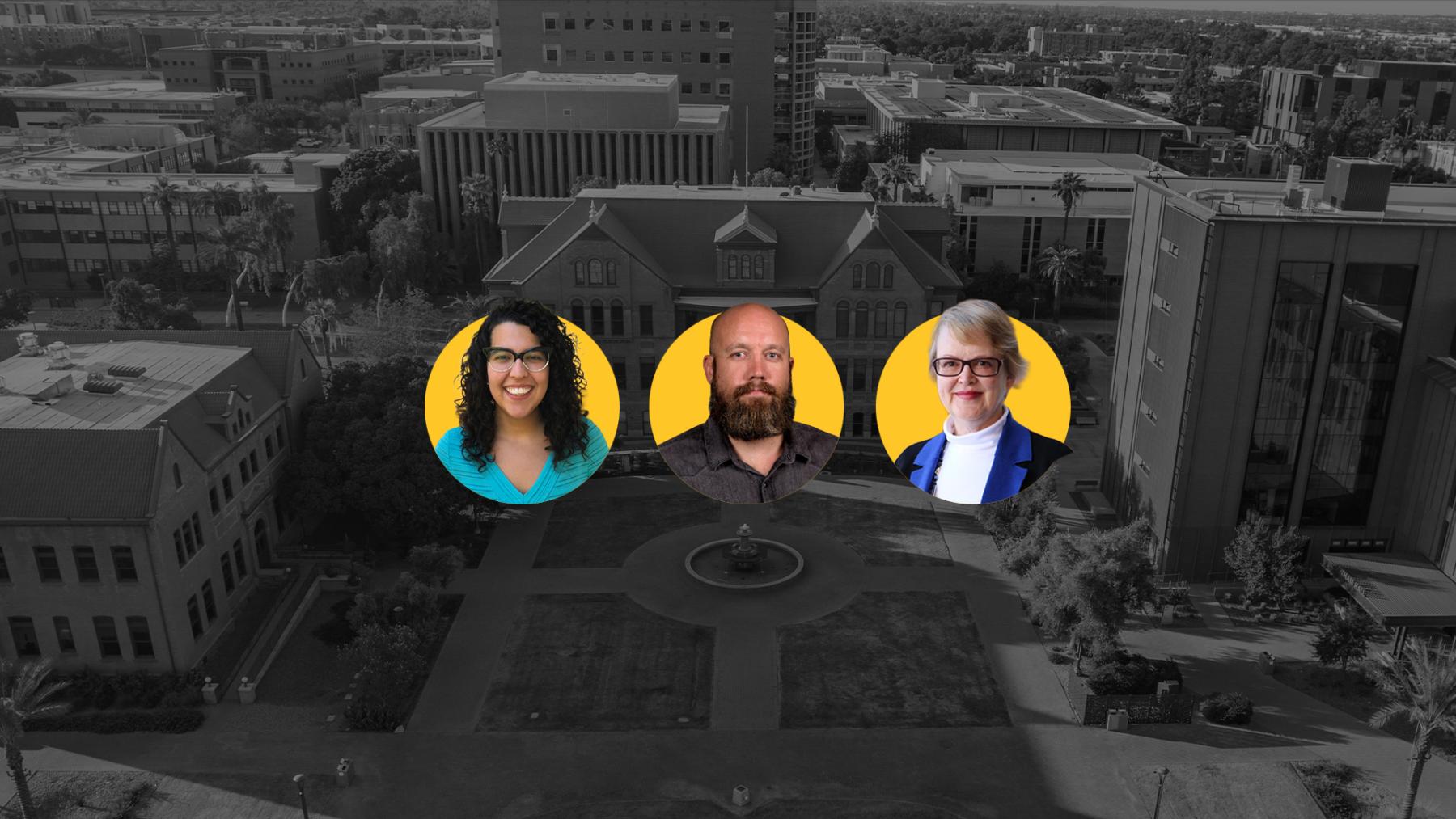
The Power of Responsible Innovation: Shaping the Future with Science and Society
Why Responsible Innovation Matters
Science and technology don’t exist in isolation — they profoundly interact with society, ethics, and democratic values. While we often consider innovation neutral, Responsible Innovation (RI) challenges this notion. RI is about aligning scientific and technological advancements with societal needs, ethical considerations and the public good.
At Arizona State University, scholars like David Guston — Foundation Professor and Founding Director of the School for the Future of Innovation in Society and institutions such as the Julie Ann Wrigley Global Futures Laboratory (GFL) and the School for the Future of Innovation in Society (SFIS) are leading the charge in embedding RI principles into research and education.
Innovation in a Rapidly Changing World
The world is experiencing an explosion of advancements — from artificial intelligence to nanotechnology, sustainable energy solutions to biotechnology. However, with these innovations come crucial questions:
- Who benefits from these technologies?
- What ethical concerns arise?
- How can we ensure that scientific progress aligns with democratic values?
Responsible Innovation offers a roadmap for answering these questions by incorporating public engagement, interdisciplinary collaboration, and ethical foresight. Programs like ASU’s Responsible Innovation in Science, Engineering, and Society (RISES) Graduate Certificate help researchers integrate these concepts into their work.
Key Elements of Responsible Innovation
Dr. Guston and ASU’s Center for Nanotechnology in Society (CNS-ASU) have developed a framework emphasizing four key components of Responsible Innovation:
1. Anticipation
RI encourages us to think ahead—considering both new technologies' potential benefits and unintended consequences.
How will AI or biotech impact society in 10, 20, or 50 years?
What safeguards should be in place before deployment?
2. Interdisciplinary Integration
Science and technology don’t exist in silos. RI promotes collaboration between scientists, engineers, policymakers, ethicists, and social scientists.
How can different perspectives shape technology development?
What role do the humanities and social sciences play in scientific progress?
3. Public Engagement
The people most affected by technological change should have a voice in its development. RI fosters open discussions to ensure that innovations align with public values.
What do communities think about AI regulations, biomedical advancements, or environmental policies?
How can citizens participate in shaping ethical innovation?
4. Ethical & Societal Considerations
RI requires innovators to consider the broader societal impact of their work—on equity, inclusion, and justice.
Does this technology disproportionately harm or exclude certain groups?
How can innovations be designed to support a more just and democratic society?
How Responsible Innovation is Taking Shape at ASU and Beyond
RI isn’t just an academic concept—it’s actively shaping policy, funding, and research initiatives globally. Institutions like the Engineering and Physical Sciences Research Council (EPSRC) in the UK and the National Science Foundation (NSF) in the US are embedding RI principles into grant funding and research evaluation.
At ASU, Responsible Innovation is woven into multiple initiatives:
Public Interest Technology at ASU: A network dedicated to integrating technology and public good.
- Principled Innovation: A framework for embedding ethical considerations in decision-making.
- Master of Science in Public Interest Technology: A graduate program that blends technology, ethics, and social responsibility.
- HSD 540: Responsible Innovation and Research: A course dedicated to exploring the ethical and societal impacts of emerging technologies.
Why This Matters for Researchers and Policymakers
For researchers, understanding the social and ethical dimensions of their work can increase the impact and reach of their discoveries. It also enhances funding proposals by aligning them with global priorities, such as the Justice40 Initiative and the NSF CHIPS and Science Act.
For policymakers, RI provides a structured way to integrate ethical considerations into decision-making, ensuring technological progress benefits everyone.
For everyday citizens, responsible innovation ensures that scientific advancements align with public values and do not exacerbate inequality.
Opportunities for Graduate Researchers
For graduate researchers, integrating Responsible Innovation (RI) into their work offers significant advantages. RI provides a structured framework to understand the broader societal context of scientific and technological advancements, helping researchers align their work with real-world challenges and public values.
Key benefits of incorporating RI into graduate research include:
Enhancing research impact – Demonstrating how scientific work contributes to ethical, societal, and policy-driven goals can make research more competitive for funding and collaboration.
Strengthening interdisciplinary skills – RI fosters collaboration across fields, providing opportunities to work with social scientists, policymakers, and industry leaders.
Developing communication expertise – Graduate researchers engaged in RI learn to effectively articulate the value and implications of their work to a variety of stakeholders, from funding agencies to the public.
Expanding career pathways – Knowledge of RI can open doors beyond academia, including opportunities in policy, public interest technology, corporate social responsibility, and science communication.
Advancing ASU’s mission – RI aligns with Arizona State University’s charter and design aspirations, reinforcing the university’s commitment to socially responsible research and innovation.
By integrating RI into their academic journey, graduate students not only strengthen their research but also prepare for leadership roles in shaping the future of science, technology, and society.
The Future of Responsible Innovation
In fields such as AI, biotechnology, and climate technology, Responsible Innovation will continue to play a critical role in shaping policy and research. Organizations like the Public Interest Technology University Network (PIT-UN) are helping bridge the gap between universities, technology development, and public good.
Additionally, journals such as the Journal of Responsible Innovation and IEEE Transactions on Technology and Society are driving scholarly discussions on these crucial topics.
As Dr. Guston highlights, science and technology must be more than just innovation for innovation’s sake. They should be purpose-driven, ethically informed, and democratically engaged.
Are you interested in learning more about Responsible Innovation? Explore these resources:
📌 Global Futures Scientists and Scholars Network
📌 Global Futures Office of Research Services
📌 Making the Most of Ethical and Societal Considerations in Research
📌 Knowledge Exchange for Resilience Alliance Tool
Let’s continue the conversation:
How do you see Responsible Innovation shaping the future?
More stories from the Graduate Insider

Graduate education is an adventure
About eighteen months ago, I set out on a journey walking the islands of the Dodecanese during a sailing trip in Türkiye and Greece with several friends. Along the way, I found winding paths, timeless villages and breathtaking views of sea and sky. That experience got me thinking about how adventure shows up in other parts of life, especially in learning.

From practice to presentation: How to deliver a winning faculty job talk
Giving a job talk can feel like the most high-stakes presentation of your academic job search. It’s not just a research seminar—it’s your opportunity to demonstrate vision, communication skills, and fit within a department. In a recent Lunch and Learn, faculty members Associate Professor in School of International Letters and Cultures, Anita Huizar-Hernandez, Professor in School of Life Sciences Jeffrey Jensen, and Professor in Department of Physics Patricia Rankin shared concrete strategies to help graduate students and postdocs succeed as future faculty candidates.

Mentoring matters: Mentoring students through impostor syndrome
Graduate education can be an exhilarating journey — but for many students, it also brings moments of self-doubt and uncertainty. In our recent Mentoring Matters panel, “Mentoring Students Through Impostor Syndrome,” Graduate College Senior Associate Dean Dr. Lisa Anderson sat down with Dr. Rebecca Wachs, Associate Professor in the School of Biological and Health Systems Engineering, and Dr.